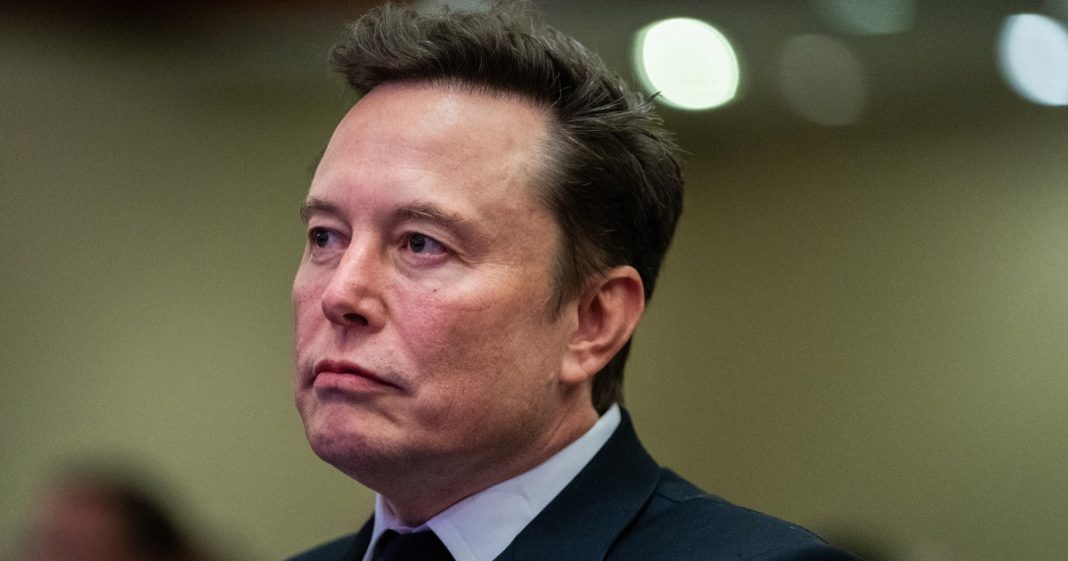Key Takeaways
- Tesla shareholders approved a $1 trillion compensation package for Elon Musk
- Over 75% voted in favor of the largest corporate pay deal in history
- Musk must meet ambitious targets including 1 million humanoid robots and 20 million vehicles
- The package could make Musk the world’s first trillionaire
Tesla shareholders have overwhelmingly approved what could become the biggest compensation package in corporate history for CEO Elon Musk, potentially worth up to $1 trillion over the next decade. The landmark deal requires Musk to hit extraordinary targets including selling 1 million humanoid robots and dramatically expanding Tesla’s market value.
Brandon Ehrhart, Tesla’s general counsel, announced that over 75% of shareholders voted in favor of the package during the company’s annual meeting. Following the announcement, Musk celebrated on stage alongside robots, declaring the vote marks “a whole new book” for Tesla’s future.
“I super appreciate it. Thank you, everyone,” he said. “What we’re about to embark upon is not merely a new chapter on the future of Tesla but a whole new book.”
Path to Becoming World’s First Trillionaire
Musk, already the world’s wealthiest person with approximately $473 billion according to Bloomberg Billionaires Index, could become the first member of the “Four Comma Club” with $1 trillion in wealth. This comes despite Tesla facing brand challenges and falling revenue in the first half of 2024.
The company is now betting heavily on future technologies including humanoid robots and robotaxis to drive growth. However, neither technology is currently commercially available – Tesla isn’t taking robot orders, and robotaxi prototypes still require human safety drivers.
Shareholder Support and Opposition
Musk’s diverse supporter base, ranging from retail investors to Silicon Valley leaders, actively campaigned for the package on social media platform X. Tesla’s investor relations team argued the deal would “keep Elon’s time, energy and considerable talents focused on Tesla.”
However, the proposal faced opposition from significant investors including Norway’s sovereign wealth fund, which expressed concerns about share dilution and executive compensation risks.
“While we appreciate the significant value created under Mr. Musk’s visionary role, we are concerned about the total size of the award, dilution, and lack of mitigation of key person risk- consistent with our views on executive compensation,” the fund’s manager, Norges Bank Investment Management, said in a statement.
Control Over Tesla’s Future
Musk has emphasized that the package is less about wealth and more about maintaining influence over Tesla’s strategic direction, particularly regarding advanced robotics development.
“If I go ahead and build this enormous robot army, can I just be ousted at some point in the future? That’s my biggest concern,” he said last month in a webcast with Wall Street analysts.
“I don’t feel comfortable building that robot army if I don’t have at least a strong influence,” he said.
Ambitious Performance Targets
The compensation package includes 12 operational milestones that would grant Musk shares worth up to 12% of the company if Tesla reaches a $8.5 trillion market capitalization. Key requirements include:
- 20 million Tesla vehicles delivered
- 10 million Full Self-Driving subscriptions
- 1 million humanoid robots delivered
- 1 million operational robotaxis
- Eight separate profitability milestones
For context, Tesla delivered 1.79 million vehicles in 2024, slightly down from 1.81 million in 2023. Musk must remain CEO for 7.5 years to vest any shares, though he can continue leading SpaceX and xAI.
The agreement also requires Musk to develop a CEO succession framework, though no timeline is specified for his departure. The new shares would supplement his existing 18% voting stake, which includes contested shares from his 2018 compensation package currently under Delaware Supreme Court review.
In a separate development, a shareholder proposal for Tesla to invest in Musk’s xAI artificial intelligence startup received mixed support with significant abstentions, prompting the board to evaluate next steps.




